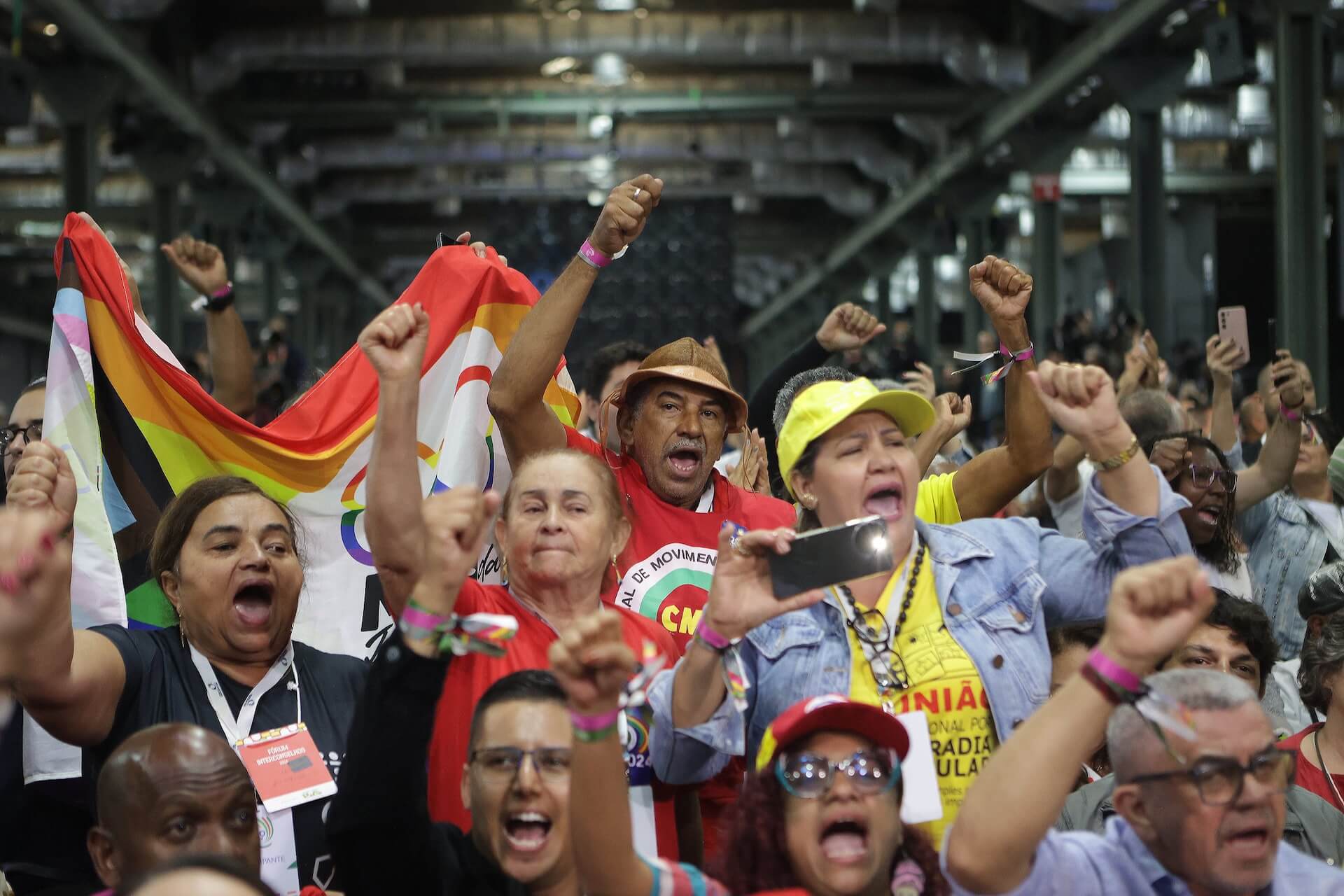In a groundbreaking initiative, BRICS civil society will participate in Sherpas Meeting in April
Cultural and Civil Society Exchange is one of the priority axes for the BRICS. Congregating grassroots movements, trade unions, business, academic, and/or parliamentary representatives, the People to People (P2P) platform will be a highlight under the Brazilian Presidency.

Por Franciéli Barcellos de Moraes | francieli.moraes@presidencia.gov.br
In accordance to the BRICS Terms of Reference, cooperation among nations is structured in three pillars: Politics and Security, Economy and Finances, and Cultural and Civil Society Exchange. The latter will be highlighted during the Brazilian Presidency through the promotion of the People to People (P2P) program, the axis that fosters the social participation of the group countries.
“The social pillar ensures that the seeds we plant will bear fruit in our societies. Gathering leaders every year is not sufficient if we are not able to listen to the aspirations of our citizens."
Some meetings in this segment have already taken place in Brasília this year, such as the Youth Group and Think Tanks. However, one of the key distinctions of BRICS Brasil’s social participation agenda is set for April 24–27, when the group’s second Sherpas Meeting will be held. Traditionally reserved for the countries’ diplomatic leaders, this meeting will feature an unprecedented initiative by Brasil’s coordination: for the first time, civil society organizations will have a seat at the table.
Gustavo Westmann, head of the International Advisory to the Presidency of the Republic (Assessoria Internacional da Secretaria Geral da Presidência da República /SG-PR) and P2P coordinator, explained that this move ensures the proposals from grassroots movements, trade unions, and representatives from business, academic, and parliamentary sectors will be heard. The goal is to give a voice to the diverse stakeholders within the social pillar of the Global South cooperation group. "It is increasingly clear that civil society is no longer content with just being present—they want to have an impact, to truly be part of the conversation. This is a global trend, and in Brasil, it is especially strong under President Lula’s leadership," said the diplomat.
“The social pillar ensures that the seeds we plant will bear fruit in our societies. Gathering leaders every year is not sufficient if we are not able to listen to the aspirations of our citizens. The engagement groups involving entrepreneurial women, business people, youth, parliamentarians, unions, academics, and civil society will have full support from the Brazilian Presidency,” said Lula during his participation at the first Sherpas Meeting of the BRICS.
“Our goal is to make sure civil society is involved in every decision-making process, drawing from the experience we've built over the years. We want the outcomes to not only have civil society's backing — the very foundation that will support them — but also to be executed effectively and with real impact," Westmann explained. He pointed to past successes, particularly highlighting last year’s G20 Social, where the Brazilian Presidency took the groundbreaking step of boosting social participation, bringing together thousands of voices at the event’s conclusion.
The BRICS Civil Council will also convene in Brazil this year. Launched last year, the organization enhanced civil society participation by introducing a higher level of institutionalization. The councils are the most influential platforms within the P2P structure, preceding the forums and thematic meetings. The other three established councils are Youth, Think Tanks, and Business. The Civil Forum, which has now completed ten years since its creation, has the following priorities:
- Digital governance and artificial intelligence in the Global South perspective;
- Climate change and dialog with COP30;
- Reform of the international financial, monetary, and fiscal systems; and
- South-South cooperation to reduce inequalities, with focus on health.
The activity calendar under the P2P umbrella is still being finalized and will be fully published on this website — the official BRICS Brazil channel.
Civil society in the Finance Track
Coordinated by Brasil’s Ministry of Finance (Ministério da Fazenda), the BRICS Finance Track will promote a “Dialog about Brasil’s BRICS Presidency with Civil Society”, scheduled for the end of the month. The event will consist of two sessions during which the Track will present its priorities, one in the city of Rio de Janeiro (RJ) and one in the city of São Paulo (SP). Participation requires registration through the following forms (links):
Session I – Rio de Janeiro (March 24, Monday, from 2:00 to 3:30 PM)
Session II - São Paulo (March 27, Thursday, from 2:00 to 3:30 PM)